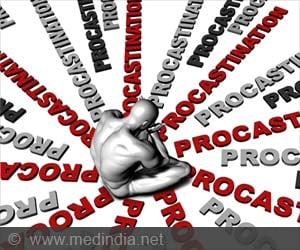The gender test ordered up for the South African wunderkind who grabbed 800-metre gold this week could reveal any of several genetic disorders resulting in a physically ambiguous sexual
The gender test ordered up for the South African wunderkind who grabbed 800-metre gold this week could reveal any of several genetic disorders resulting in a physically ambiguous sexual identity, experts say.
Hormones and surgery, in other words, are not the only things that can bend gender to boost female performance by shape-shifting bodies and building muscle mass.But taking steroids or hiding a sex-change is cheating.
Being born with unusual chromosomes is not, which raises the uncomfortable possibility that an athlete could be stripped of a gold medal because of her -- or his -- genes.
Whether this is what lies in store for 18-year-old Caster Semenya, who demolished the competition at the athletics world championships in Berlin, is still unknown.
A spokesman for the sport's governing body, the International Association of Athletics Federations (IAAF), said Thursday that even if she "fails" the gender test she might still be able to keep her title.
But her blistering speed and masculine physique raised doubts about her sexuality, prompting the IAAF -- acting, perhaps, after a challenge from a national federation -- to call for a closer look.
Advertisement
"Determination should not be done solely on laboratory-based sex determination" in resolving contested cases, it says.
Advertisement
An expert on "gender and transgender issues" may also take part, according to the guidelines, which identify several genetic disorders not necessarily disqualifying even if they can give female athletes an edge.
The IAAF and other sports authorities -- notably the International Olympic Committee -- have not always been so nuanced in determining sexuality.
In the 1960s, both bodies began to conduct what the IAAF today acknowledges were "rather crude and perhaps humiliating physical examinations" of genitalia.
This policy was quickly dropped in favor of a simple genetic test from saliva samples to determine whether an athlete had two "X" chromosomes (a woman) or "X" and "Y" chromosomes (an man).
But the technique was deeply flawed, and failed to account for a previously unsuspected wide range of sexual variation that is now often called "intersex" -- "being born somewhere between the sexes," in the words of Michelle O'Brien, a board member of the International Intersex Organisation.
"The sports world found itself confronted with the reality of multiple sexual identities that did fit with these categories and which science was bringing to light," notes Thierry Terret, author of the book "Sports and Gender."
"Genetic, gonadal and anatomical sexuality all need to be separated. There are not just two sexes -- XX-female and XY-male -- but many along a continuum," he wrote.
In the Klinefelter syndrome, for example, men carry an extra "X" chromosome, often resulting in smaller testicles and reduced fertility.
Another condition, called congenital adrenal hyperplasia (CAH), is an endocrine disorder in which the adrenal glands produce abnormally high levels of virilising hormones in women, resulting in masculinisation.
CAH "may accord some advantage" to female athletes but is "nevertheless acceptable," the IAAF guidelines specify.
In yet another variant called complete androgen insensitivity syndrome (CAIS), a person has XY chromosomes but looks like a woman.
The individual develops a vagina, but rather than female productive organs has undescended or partially-descended testes.
Source-AFP
TAN









